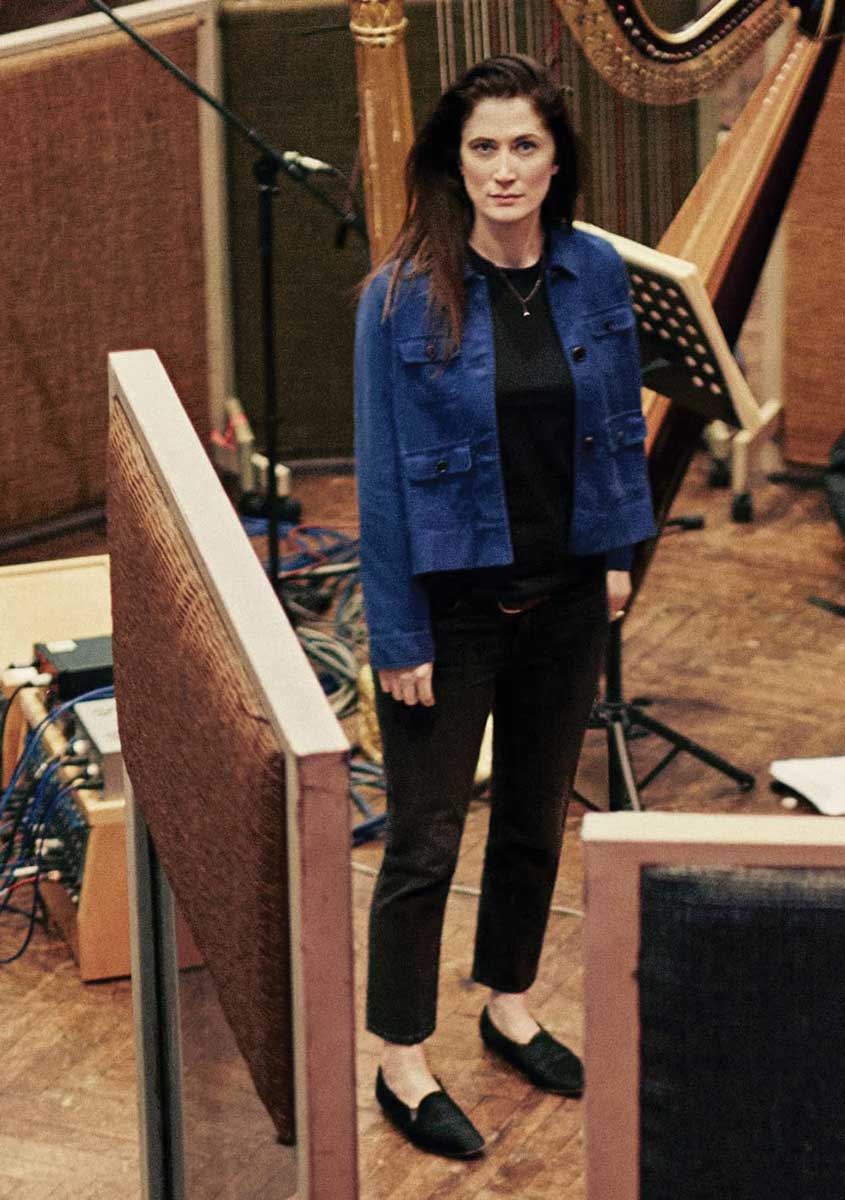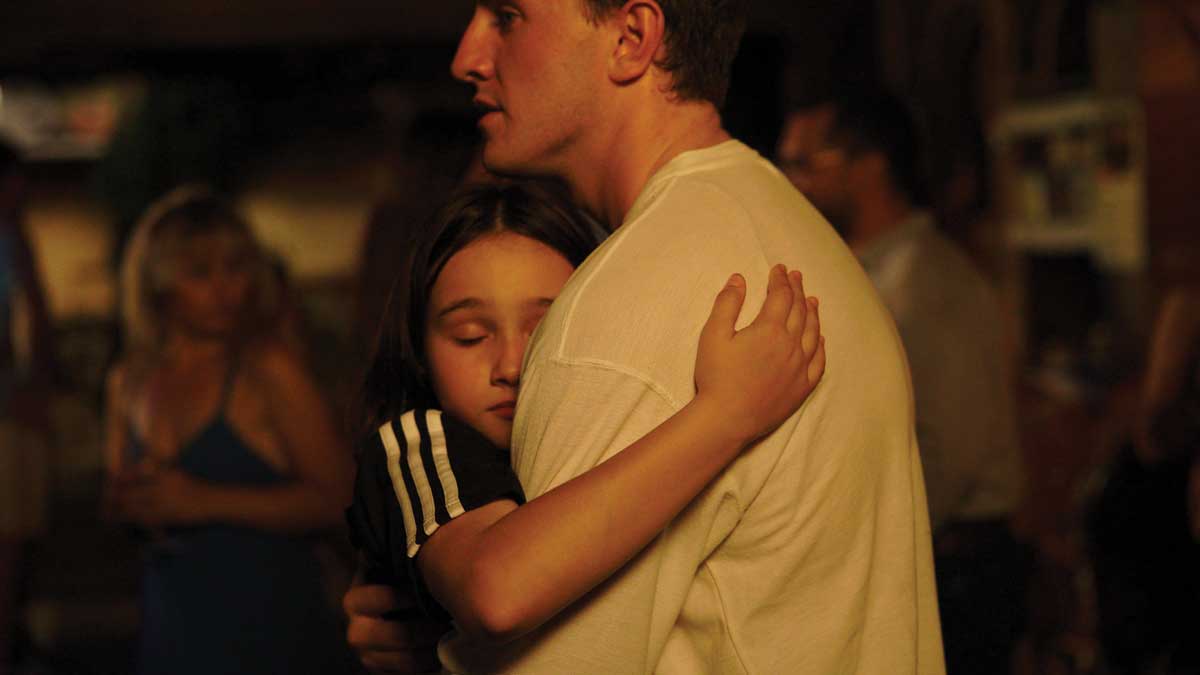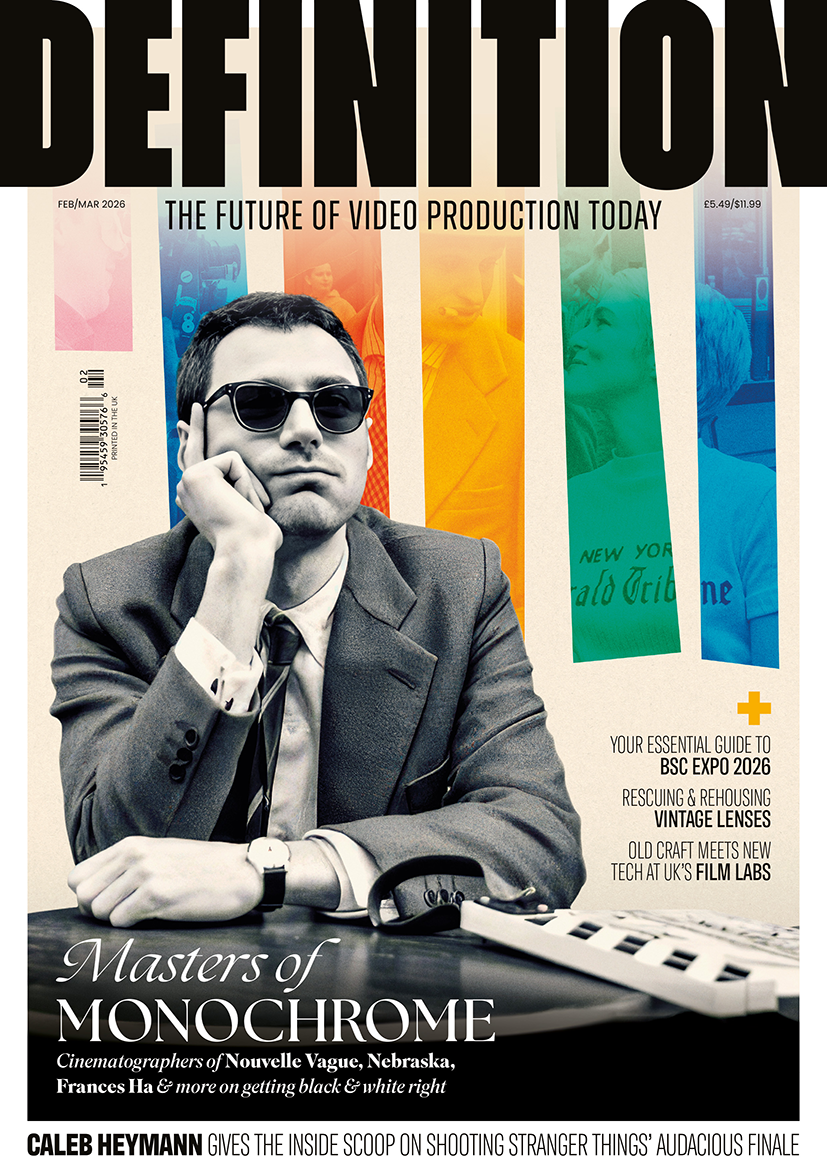
Career Stories: Lucy Bright
Posted on Oct 30, 2024 by Katie Kasperson
Music supervisor on Tár, The Iron Claw and Aftersun, Lucy Bright is immersed in the art of the needle drop. She outlines her 15-year career in what is now one of Hollywood’s hottest roles, from starting out at record labels to working with artists’ estates
Images A24 Films, Interview Katie Kasperson
Definition: How would you describe your path into music supervision?
Lucy Bright: I came from the music side, working at record labels. I was lucky that those specific labels had strong links with film – or with composers and artists who had worked in film.
I’d always loved music in film, but never thought about the practicalities of how film scores or soundtracks come about. It was just like magic. I started getting a little insight into exactly how that happened; I began to peek behind the curtain.
I’d never even heard of music supervisor being a job, which is not surprising because it’s only now getting this spotlight. It was something that just sounded interesting because of that alchemy of music and picture, and I wanted to be part of that – on both the business and the creative side.
Def: Can you talk us through the music selection process, with Aftersun’s use of Under Pressure as an example?
LB: Under Pressure was not in the script; Paul Mescal danced to a click track. It was in the edit when Charlotte [Wells] chose it and we didn’t have a plan B.
When it came to the clearance, I knew it was going to be tricky for all sorts of reasons – not least because we didn’t have a big budget. It’s one of the biggest songs in the world by two of the biggest artists who are no longer with us, so you’re dealing with estates.
I felt confident because Universal Records was one of the key rights owners involved, and we’ve worked together for a long time. When I came to them with a first-time director and a film with only one well-known actor, I was asking them to make that leap – and they got it.
Def: Do you tend to face legal hurdles when securing licensing rights?
LB: I love working with those teams; they are the ones that can be make-or-break. Over my 15 years of experience, I’ve been building up those relationships. I will call on them for all sorts of reasons – whether it’s that you don’t have much money or it’s a tricky song to clear for whatever reason. The people in the sync departments are the key to everything.
Of course, it works the other way, too. Increasingly, music in media is one of the biggest ways musicians can make any significant amount of money. It has become something all labels and publishers are desperate to get for their artists. It’s a symbiotic relationship which, most of the time, works really well.
Def: At what stage in the production process do you normally step in?
LB: It doesn’t always work this way, but even if there isn’t music in the script, I would prefer to come on at script stage because it allows certain conversations to happen early on. ‘Let’s not put a Beatles track in there because you can’t afford it.’ We can have that conversation now and get it out the way.
Def: What career milestone or moment are you most proud of?
LB: In The End We Start From, there was one scene written into the script specifically for music, though no particular song had been chosen. I suggested It’s Not Easy by Ofege to the director, and she absolutely loved it – it fit the moment perfectly. While the band’s lead singer has passed away, his widow was delighted. The use of music in film is a two-way, respectful relationship. Knowing that someone is happy with it’s inclusion is reassuring.
Def: How much time is spent researching music and building your own catalogue?
LB: Generally, it’s a big part. I am also quite careful about the projects I take on; I’m not necessarily the right person for every film or TV show. I try to agree to projects where I feel I can bring expertise, or that chime with my personal tastes as much as possible.
Def: Do you have any favourite needle-drops?
LB: I look back to all the John Hughes films – Ferris Bueller’s Day Off, Sixteen Candles and The Breakfast Club. I can watch those films over and over again and still be in awe of those songs. Also, TV has changed so much, and Nora [Felder’s] work on Stranger Things is incredible. The fact that her choices brought Kate Bush back onto the charts – the power of that is amazing.
Def: What advice do you have for an aspiring music supervisor?
LB: Every week, we get emails from people saying they want to be a music supervisor – you can tell that it’s because they think ‘I make great playlists’. Of course, there’s nothing more exciting than making a playlist for a director; they fall in love with those songs, plus you can change that artist’s life. But learning the basics of clearance and rights as well as negotiation is the bedrock of the job. Get all the basics in place, but keep your enthusiasm for music. If you can do that, you’re in a good place.
This interview was first published in the November 2024 issue of Definition.











